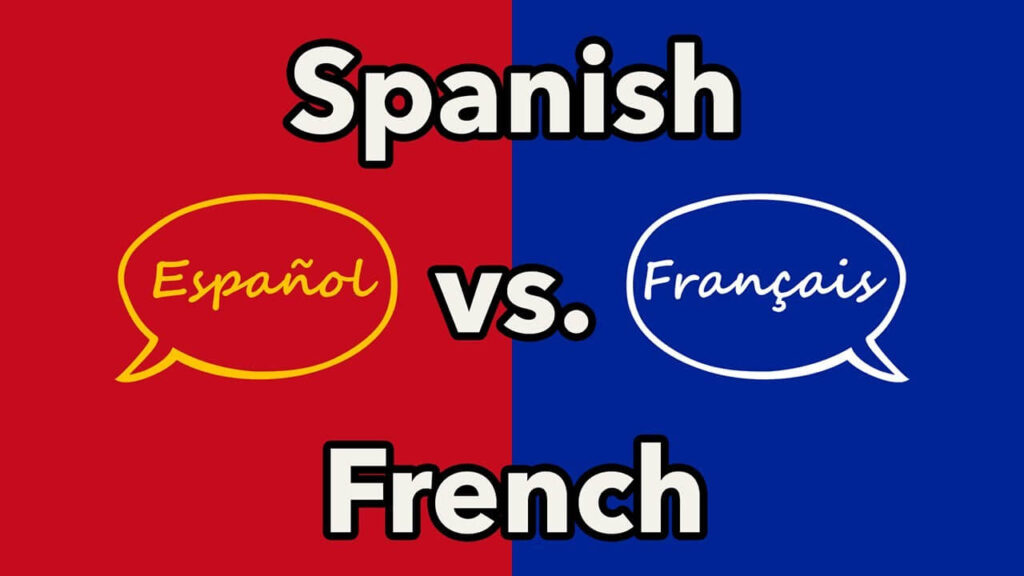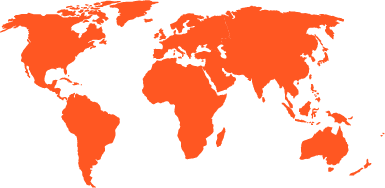Men needs language to communicate. Whether it is sign language, verbal language or whatever the language may be. So, what is language? Language is a tool for communication. A tool that aids in the expression, articulation and conveyance of information, ideas and emotions through signs, words of an individual to give them an order, a meaning by logical and consistent explanation to nullify any abstract or complex thought. This is why different people living in different communities, localities and societies use language to communicate. Whereas, communication is the process of exchanging and passing the information, ideas, messages from one individual to another (the receiver) through language (being a tool) between the two parties. Why am I saying all this? Well, if you have a love for languages like I do then you could relate to my journey through language learning. We have learnt language(s) since our childhood once we could speak even while being a toddler. In school, I learnt French and continued learning it in college and also, took up Spanish. Therefore, in this article I will talk about my experience, observations and opinion about the two languages and why I preferred learning French than Spanish.
Note: everything I mention is mostly based by my experiences, observations, personal taste, opinion and research.

Here are some reasons why I preferred and enjoying learning French than Spanish:-
1. The grammar– I find the French grammar pretty intricate, yet that is what fascinates me too. Yes, it fascinates me because of the precision the language gets in a result of the numerous grammatical rules. In fact, I can say that it has made an impact in my life by making me a meticulous person. I enjoy paying close attention to details. Whereas, the Spanish grammar has fewer rules in comparison to the French. Somehow, I still find it hard to learn/memorize the tenses in Spanish. I observed this about my classmate too, struggling with learning the tenses. I think the French grammar is slightly easier than Spanish grammar because of these two reasons/concepts:
- In French, the past tense (el pretérito indefinido de indicative- Spanish) French uses the present perfect tense (passé composé – French), the past subjunctive (subjonctif– French), and French usually uses the imperfect past tense or imperfect tense (imparfait– French).
- I made an observation while comparing the two grammars, in French, passé composé (equivalent to pretérito perfecto compuesto in Spanish) used to express the past tense since passé simple has fallen out of use in the spoken language. Whereas, in Spanish, el pretérito (which is equivalent to passé simple in French) is still widely used in the spoken language. For example:
Il a bu une bouteille de vin. –French (Él) Bebió una botella de vino. –Spanish
He drank a bottle of wine. (He) drank a bottle of wine. –English
In terms of form, the Spanish equivalent of the French sentence would be: (Él) ha bebido una botella de vino. = He has drunk a bottle of wine (rather than he drank).
Also, in Spanish, the personal pronoun (‘He/ Él’ in this case) is not mentioned while speaking because the gender will be changed according to the personal pronoun while conjugating it as (Ella) bebía una botella de vino. Another issue which made it tougher for me to learn the tenses in Spanish is there are the two auxiliary verbs “ser” and “estar” which means “to be”. Whereas, in French it’s only one “être” so, there was no confusion learning it. If you are someone who likes grammar and interested in Spanish or French, you can check this website to learn any, www.languagemingle.com. Also, if you want to have a free trial lesson, you can choose any language you are interested in learning. Additionally, it’s always safer to take free trial sessions before subscribing to language learning companies as you might not like it later and might end up regretting paying the amount already before not experiencing at least one session. So, you can get free lesson to learn Spanish or French (or any other language you prefer) on Language Mingle since they allow you to have free sessions to try out their program at zero money upfront. For more information, please visit: www.languagemingle.com.
2. Vocabulary– Now, I suppose, you have had enough of the grammar part. Let’s look at some interesting things about the vocabulary of both the languages. When I first started learning Spanish, I had noticed this about the vocabulary being so similar to the French. There were many words which can be found in the French vocabulary such as French (Spanish) English examples order: si (si) if, livre (libro), education (educación) education, attention (atención) attention, bien (bien), good/fine, délicieux (delicioso) delicious, tard (tarde) late, minute (minuto) minute, lent (lento) slow, lune (luna) moon, vin (vino) wine, triste (triste) sad, situation (situación) situation, content (content) content/happy, etc (etc) etc. so, I looked up the lexical similarity between Spanish and French and it is 75% which means that 75% of the words in either language have cognates (equivalent/similar words of the same etymological origin) in the other language. I found it interesting because some of the words, as you can see, are similar to English too. The journey of each word shifting from one language to another and taking a new form fascinates me quite a bit.

Since, I mentioned “music of the languages” I will talk about it more in details. What I mean by it is, when I listen to French poetry, music, literature (prose and ballads) I feel the music the words create are very balanced, mellow and yet very precise. That means it sounds magical but not meaningless. These are must read poets, playwrights, novelists and authors, such as Molière, Camus, Rousseau, Hugo, Musset, Vigny, Lamartine, Flaubert, Rimbaud. Back in those days women used pseudonyms/pen names such as George Sand (Amantine Lucile Aurore Dupin) and other French female figures I admire such as Colette, Simone de Beauvoir. The imageries they all created would make you feel as if you are watching it all happen instead of actually just reading it. So, it’s worth a read! 😉
In contrary, Spanish is a very different one. It is much less mellow, very dynamic, and exuberant especially in the poetry. I remember learning a poem about a donkey which I found to be really cute (even though it was of elementary level). I haven’t read much of Spanish literature otherwise as my level was only elementary but I could distinguish the difference between the energies of both the languages. However, I felt that the language was a bit hard on the ears in comparison to the flow and melody of French rhythm.
4. Culture– The Spanish culture is much more vibrant, dynamic and jolly than the French culture. Especially, the Spanish music, dance, and cuisine mainly now has spread worldwide. However, French culture brings you closer to sports, arts, French style and literature (I mentioned above already), cuisine, etc. Also, the equipment used in various sports is used worldwide which evidently provides more jobs, and it’s also the official language of the Olympics.
5. Difficulty level– The difficulty level of French is probably quite high mostly because of its grammar. However, it was pretty interesting, could say even easy to an extent, and I truly enjoyed learning the tenses. In fact, I still do! May be it was because of the technique of memorizing and then writing it down as a small weekly test was amusing for me and another classmate of mine as well! He admitted to have enjoyed every step of learning the tenses. Perhaps, it is the way it is because of learning in when we were much younger. I’m saying, we were much less stressed out, carefree about the results back then than now and more optimistic.
Now, the Spanish tenses were much hard for me to learn and somehow, I didn’t enjoy it either. It was pretty confusing for me and others too. However, the method of teaching was different and fun as well. I face difficulties when I tried to express myself in Spanish due to the lack of speaking and the grammatical mistakes made me feel even more insecure. So, these factors made me speak little. If you want to learn Spanish or French lessons, please visit: www.languagemingle.com
Bonus: Hurry, you can get their free lessons too!
6. Global influence in global market and the demand– If you can speak Spanish you have a high chance of getting better jobs and a higher pay especially in Latin American countries. However, if you know French the chances get higher because French colonization has spread across the globe far more than Spanish has. Countries in Africa speak French, even in the UN French is widely spoken, and also other European countries like Switzerland. French has a lot of demand because of the competition, competition as many are fluent at it and so, the increase of demand than Spanish. And if someone is a global market player, he would know that French has companies outside France and mainly worldwide as well. So, planning to get some French lessons yet? Join Language Mingle for free trials at languagemingle.com with a native speaking tutor!

Bonus: You can take up affordable online classes on Language Mingle, for more info: www.languagemingle.com
8. Language Mingle or Rosetta Stone– There are many language learning apps, platforms and software in the market but which is best for you? Well, so let’s look at one of the best platforms recommended by many language learners called Rosetta Stone. It has free trials too. However, according to TechCrunch, there are five-three levels depending on the language, so, for a single level, the software costs up to $179 and the rate increases as the level clears up. So, you see, $179 is out of the budget and impractical if you are a student trying to be independent. Whereas, in comparison to Language Mingle, Rosetta Stone is almost unreasonably expensive as you will need to pay only for every session you choose to learn the language. It’s highly practical and useful for casual language learners, undergrad, graduate students and also jobseekers. For, learning a language could boost up your skill set and you would have an upgraded resume and a new language to add on it, altogether! If interested, you can read an article I have written about how to advance your career by learning a language, you may read it here:
https://www.languagemingle.com/advance-your-career-by-learning-a-language/
Continuing the comparison of Rosetta Stone and Language Mingle, according to online reviews, Rosetta Stone lacks the cultural information and translations which makes it quite dull and very hard for foreign learners. However, Language Mingle is better because the native speaking tutor would also give you cultural information if you want, and also provide you translations while communicating when required. Moreover, according to linguistic experts, the best way to learn a language is to learn from a human being, not a software or application. There are many other benefits of joining Language Mingle such as getting free lessons, focused only on your goal and growth, one-on-one learning, as so much more! These are some reasons why Language Mingle is the best of all. Excited to join our journey? Sign up at www.languagemingle.com good luck!






